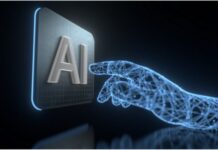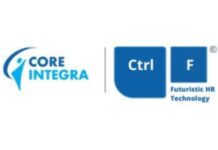A study by a global customer service software company revealed that nearly 67% of HR professionals believe that AI has many benefits and a positive impact on the recruitment process.
Hiring managers face the herculean task of attracting, engaging, and converting job seekers into employees. The legacy hiring processes involve manual tasks that are time-consuming. This not only puts excessive pressure on recruiters but also leads to dissatisfaction among the candidates.
Artificial intelligence (AI) has impacted almost every business function, including HR. As a wave of AI apps has inundated the market, recruiters are now in a quandary. But the right suite of AI tools can certainly help streamline and transform the talent acquisition function. It makes job postings, sourcing, screening, interviewing, and selection faster and easier. Let’s examine a few key applications of AI in detail.
Improvised job posting
Companies post job ads, or job postings, to attract candidates. But the manual process won’t be practical when there are more openings across functions. Also, hiring managers have to use multiple job portals and social media channels to source the right candidates. Therefore, they have to find a smarter way to do it.
AI can be used to create more accurate job postings. It automatically matches the requirements and the right keywords to reach the right candidates. AI-based platforms can post jobs automatically to multiple job boards and send personalized messages to prospective candidates. This not only saves time and effort but also trims costs for HR.
Smarter screening
All candidates in the database have to be screened for effective recruitment. Factors such as qualification, skills, and experience are considered when moving candidates to the next round. The manual assessment system is not practical when the number of applicants is massive.
An AI-based application tracking system (ATS) screens cover letters and resumes and matches them with job descriptions using natural language processing (NLP). It can also perform assessments quickly and accurately. Technologies like robotic process automation (RPA) and machine learning (ML) are also being combined to minimize human intervention and errors in these processes.
Insightful Interviews
Face-to-face interactions and human judgment worked wonders in traditional recruitment processes. Times have changed. Teams are distributed. The number of applicants has skyrocketed. Hiring managers can no longer spend time chasing candidates for interviews.
In a technology-driven interview process, candidates either take an online test, record their video, or talk to a bot. The AI-based system analyzes conversations and candidate sentiment to offer insights to hiring managers. In this process, HR need not spend time on basic Q&A sessions to gather or provide information. Moreover, the interview scheduling process itself can be automated.
Delightful experiences
Candidates have options, and employers have innumerable applicants. No doubt, compensation and position matter a lot. Nevertheless, it is the experience that makes a candidate like a company a bit more than the others. But how is it possible for hiring managers to delight every candidate?
Experience starts with the company’s job portal. Candidates like an intuitive portal that presents company and job-related information in a user-friendly manner. AI-powered portals display relevant jobs and also send personalized communication to candidates. Also, the information acquired from the software and surveys can be used to perform HR analytics. The results can be leveraged to improve the candidate experience.
Bias-free hiring
Prejudice or unconscious bias are not uncommon in recruitment. Many companies select known individuals since they are considered trustworthy. But that may not always be a reliable option when skill and experience matter more. So, the question is: How can organizations prevent bias when hiring multiple people across functions and locations?
When AI performs assessments, there’s no scope for bias. The system executes the commands accurately. It analyzes multiple factors like responses, expressions, body language, and more. There’s also no possibility for subjective opinions since data drives the decisions. Therefore, it becomes a level-playing field, and the right candidates are moved to the final round.
Concluding thoughts
The number of vacancies and the pace of hiring have grown in recent years. Hiring managers are now dealing with a deluge of applications every day. Therefore, traditional methods of hiring can’t meet the requirements anymore.
Speed, efficiency, and accuracy have become the most important criteria for successful talent acquisition. Digital hiring has already become a common practice in HR departments. But the future of recruitment lies in the way hiring managers leverage AI to achieve their talent acquisition goals. There’s more good news: The capability of AI is improving by leaps and bounds. It’s now gearing up to analyze subjective traits like creativity, innovation, and leadership qualities. Whatever the case, it is unlikely that AI will ever completely replace human beings. But it’s all set to amplify the potential of hiring managers.















